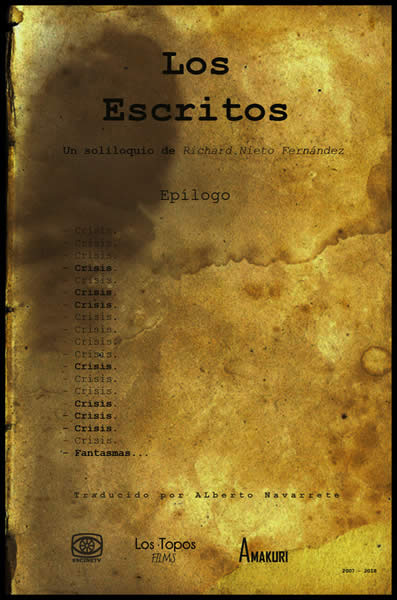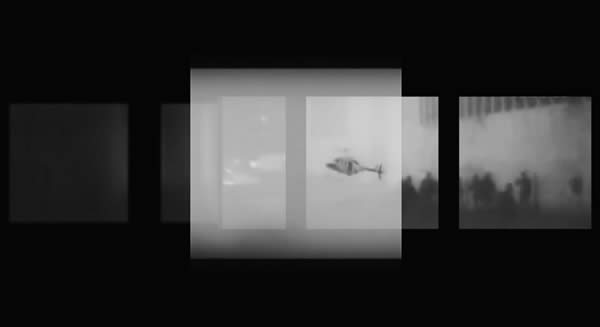
Screens are the battleground of a symbolic conflict that dates back to the beginnings of modernity. Every image that appears in them (big and small) has the potential to change the world, for better or for worse. With its multiplication, with the ubiquity of the audiovisual and with the exponential growth of the capitals associated with this industry, our society requires pieces that dispute the hegemonic, normative and industrial discourse. Today, cinema and audiovisual art become “experimental tactics of war” for activists committed to their aesthetic and political context across the planet.
We have then divided the exhibition into three concentric moments related to the place from which the discourse is produced and its area of influence: “HERE”, for projects that are concerned with micro-politics, “THERE” for those who dare to look at the Regional political junctures and “BEYOND” for those who analyze global problems.
The powerful manifest images – at the local, regional and global levels – that are part of this selection, seek to be facilitating agents of important and urgent struggles and social and political changes in contemporary society.
Programmers:
DANIEL MONJE, JULIÁN MEDINA
3a PART
[HERE]
6 SHORTFILMS
1h. 13min. 51s.
RUNTIME
1.

Los Escritos
The Writings
—————————————–
Richard Nieto Fernández
—————————————–
Subjective documentary on how the crisis has consumed the lives of many Venezuelans. The journalistic texts of the year 2007 predict what we would suffer; 11 years later we are swallows by the monster of crisis. We can not give back time, only make cinematic memory to not forget.
2018, Venezuela | 12min. 10s.
2.

Uróboros
Ouroboros
—————————————–
Antonio Arango Vázquez
—————————————–
Experimental film essay about the students massacre that happened in Mexico in 1968 with a dialogue with the events of missing students in Ayotzinapa, Mexico. Ouroboros is a symbol that is represented with an animal (generally of form or proximity to a serpent) that engulfs its own tail. It symbolizes the eternal effort, eternal struggle or useless effort; the cyclical nature of things. The eternal return that begins again despite the actions to prevent it. From Nietzsche’s texts about the Eternal Return (present in Thus Spoke Zarathustra and especially in the essay The Gay Science) the film project reflects on the History and the injustices that were on the events that took place in Mexico (October 1968). These events keep repeating and manifesting themselves in one way or another. History marks us and points out events with a distance as an unrepeatable past and that has no relation to our present. It is from a philosophical point of view that we reflect on what this means. There is an allegory to the Mexican subway because it was part of the Mexican progress at that time as a symbol (even though its planning and construction began much earlier); the Mexican subway was inaugurated in 1969.
2018, México | 8min. 44s.
3.

Toma 11/06
Take 06/11
—————————————–
Jan Marceau
—————————————–
November 6, 1985 is marked for the history of Colombia as the greatest assault of the M-19 on the Colombian state. These intervened archive images of the Takeover of the Palace of Justice seem to be from silent films, of which it is not completely clear, nor will it be known with certainty what happened there. With “Toma 11/06”, it is the moment when everything begins to happen, but it is only the look from the outside, where it is observed as if we were aiming at it with a telephoto lens. The sound and the voices that accompany the film put the spectator in a constant tension as if we were witnessing a great medieval fortress trying to be destroyed, in a crossfire that lasted more than 28 hours. The music, therefore, reveals that action that is happening at the moment and that continues to contest our memory.
2018, Colombia | 4min. 2s.
4.

Histoire de la révolution
History of the Revolution
—————————————–
Maxime Martinot
—————————————–
“History of the revolution.” Ironic title for a film essay that explores the polysemy and reversibility of the word revolution: the images that arise from it, the words that dialectize or cancel out its potential, in an a-historical movement moving across the map of struggles, their grief, their glories, their traces, interwoven in the present time.
2019, France | 30min.
5.

Atordoado, Eu Permaneço Atento
Aturdido, Permanezco Atento
—————————————–
Henrique Amud & Lucas H. Rossi dos Santos
—————————————–
The journalist Dermi Azevedo has never stopped fighting for human rights and now, three decades after the end of the military dictatorship in Brazil, it is being witnessing the return of those same practices.
2020, Brasil | 15min.
6.

